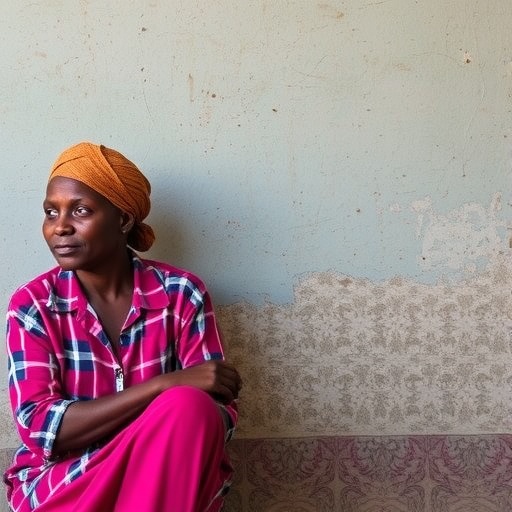In a groundbreaking study published in BMC Health Services Research, researchers led by Diop et al. conducted a thorough analysis of the various factors that influence healthcare seeking behavior within the framework of Senegal’s Universal Health Coverage (UHC) program. This analysis delves into the intricate interplay of individual and structural components that determine how citizens access healthcare services, highlighting the need for a nuanced understanding to improve health outcomes in the country.
The study emerges from the ANRS-12399 Soignants Sénégal initiative, which aimed to assess and enhance healthcare access in Senegal. The researchers employed a multilevel analytical approach, permitting them to explore healthcare seeking behavior across different population strata. This innovative methodology allows for a more comprehensive understanding of the barriers and motivators faced by individuals when navigating the healthcare system.
At the core of this research is the recognition of the multifaceted nature of healthcare seeking behavior. The authors emphasize that it cannot be attributed to a single factor but rather a constellation of conditions that include economic status, education level, cultural beliefs, and the availability of services. Each of these dimensions interacts with one another, forming a complex web that shapes health-seeking tendencies among individuals.
The significance of the study is further underscored by the context of the Senegalese UHC program, which aims to provide universal access to essential healthcare services. Given the government’s commitment to achieve health equity, understanding the specific factors that either facilitate or hinder healthcare access is paramount. The study addresses the pressing need to identify interventions that can effectively bridge gaps in healthcare provision and uptake.
The research team conducted a detailed survey involving a diverse demographic sample drawn from various regions of Senegal. The data collected provided insights not only into individual healthcare seeking behaviors but also illuminated structural issues that contribute to disparities in access. These included the geographic distribution of healthcare facilities, socio-economic inequalities, and the role of community health workers in facilitating access to care.
Among the individual factors discussed, education emerged as a prominent theme. The researchers found a strong correlation between educational attainment and healthcare seeking behavior. Higher education levels were linked to increased health literacy, leading individuals to be more proactive about seeking care and understanding the complexities of the healthcare system. Conversely, those with limited education were often less informed about available services, resulting in delayed or avoided healthcare interactions.
Moreover, economic status played a crucial role in influencing healthcare access. The research highlighted that individuals from lower-income households faced significant financial barriers when attempting to seek healthcare. These barriers included out-of-pocket expenses for treatments and transportation costs, which often deterred individuals from seeking timely care. The findings underscore the importance of implementing financial safeguards to alleviate these burdens and encourage healthcare utilization among economically disadvantaged populations.
Cultural beliefs and practices also emerged as key determinants of health-seeking behavior. In some communities, traditional healing practices were favored over modern medical treatments due to deep-rooted cultural norms. The study reveals that these beliefs can act as both facilitators and barriers, depending on how they align with the existing healthcare services. Understanding these cultural dimensions is essential for designing culturally sensitive health interventions that would resonate with the target populations.
The research findings also brought to light the impact of healthcare availability and facility accessibility on seeking behavior. Many participants reported challenges related to the distance to healthcare facilities, cramped schedules, and the availability of essential drugs. These barriers highlighted the necessity for bolstering supply chain mechanisms and improving healthcare infrastructure to enhance service delivery in rural and underserved areas.
Community health workers were identified as a vital link in the healthcare system, serving as intermediaries between the population and formal health services. The study found that increased engagement with community health workers significantly improved healthcare-seeking behaviors in their respective communities. This finding suggests that empowering community health workers through training and support can lead to improved awareness and utilization of healthcare services.
In conclusion, the multilevel analysis conducted by Diop et al. sheds light on the multifactorial nature of healthcare seeking behavior within the context of Senegal’s UHC program. The study not only identifies individual and structural determinants that hinder or facilitate access to healthcare but also provides pivotal recommendations for policymakers. By addressing these identified factors, stakeholders can help to create a more equitable healthcare system that aligns with the goals of universal coverage.
The insights from this research are not limited to Senegal but have broader implications for healthcare systems in other low- and middle-income countries facing similar challenges. Effective strategies derived from this study can contribute significantly to achieving global health equity goals. As nations strive to improve health outcomes, understanding the local factors at play will be essential in crafting interventions that truly resonate with the needs of the population.
In advancing the discussion around universal health coverage, it is crucial for researchers and policymakers alike to remain vigilant about ongoing barriers that affect healthcare access. This study serves as a reminder of the importance of continuous evaluation and adaptation of health policies to ensure inclusivity and effectiveness in healthcare delivery.
Overall, this research represents a significant contribution to our understanding of healthcare seeking behavior and calls for collaborative efforts to enhance service accessibility across all demographics in Senegal.
Subject of Research: Healthcare Seeking Behavior in Senegal’s Universal Health Coverage Program
Article Title: Exploring individual and structural factors influencing healthcare seeking behavior in the context of the Senegal’s Universal Health Coverage program: a multilevel analysis from the ANRS-12399 Soignants Sénégal study.
Article References:
Diop, O., Ba, E.H., Maradan, G. et al. Exploring individual and structural factors influencing healthcare seeking behavior in the context of the Senegal’s Universal Health Coverage program: a multilevel analysis from the ANRS-12399 Soignants Sénégal study.
BMC Health Serv Res 25, 1449 (2025). https://doi.org/10.1186/s12913-025-13611-x
Image Credits: AI Generated
DOI: https://doi.org/10.1186/s12913-025-13611-x
Keywords: Healthcare access, Universal Health Coverage, Senegal, health disparities, community health workers.




